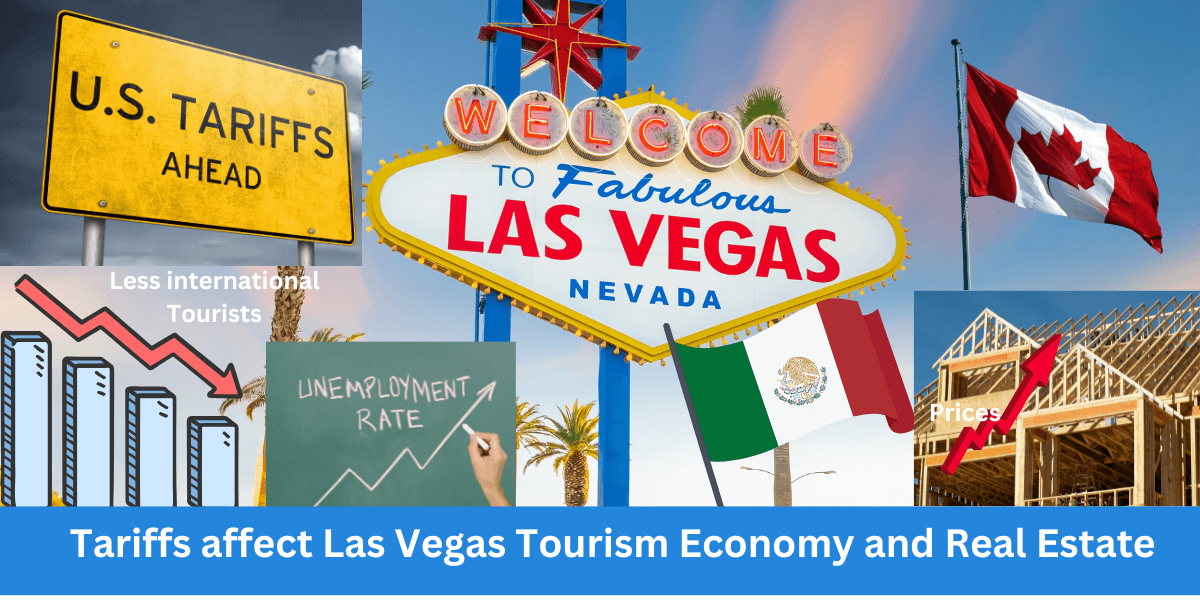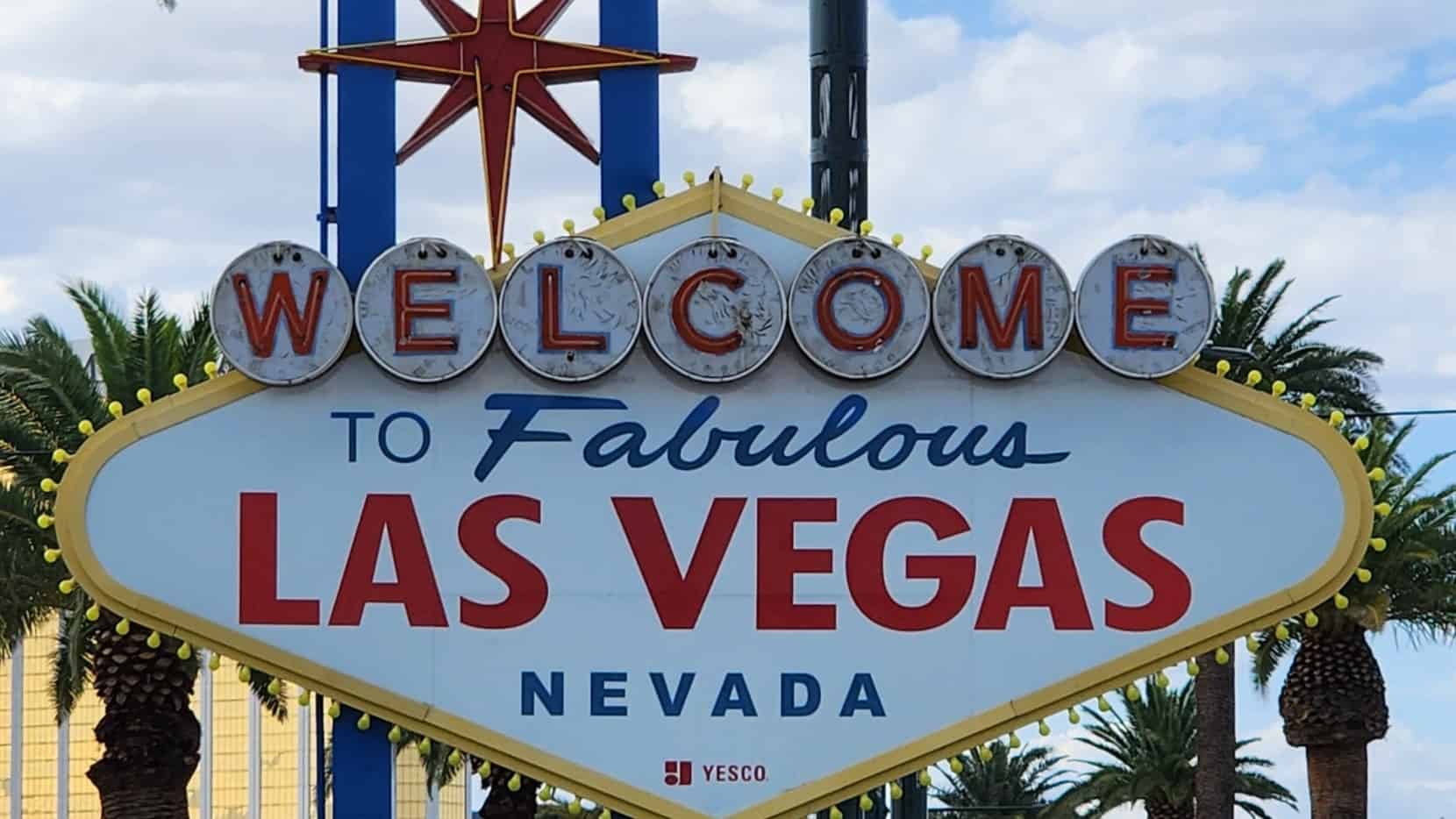Tariffs affect Las Vegas Tourism economy and real estate in ways that ripple through every aspect of our community. As a real estate professional, I can’t avoid analyzing the recent government trade policy. Having just returned from a memorable journey through Colombia and Panama, it was clear that the interconnectedness of global tourism, international trade, and local economies is unquestionable. When the US government targets Canada and Mexico—two nations that consistently rank as Las Vegas’s top international visitors—with new trade restrictions, It could potentially alter the foundation of our city’s prosperity, in addition to some extent, diplomacy deterioration. Walking the bustling streets of Panama City reminded me that tourism ecosystems are all vulnerable to the shifting winds of international trade policies. How this trade policy evolves ultimately shows up in economic indicators like city revenue, unemployment rates, and housing values, and here’s why Las Vegas residents should pay attention…
My experiences abroad gave me a fresh perspective on my hometown of Las Vegas—a city whose lifeblood is tourism and hospitality.
Visiting Two Countries on One Trip
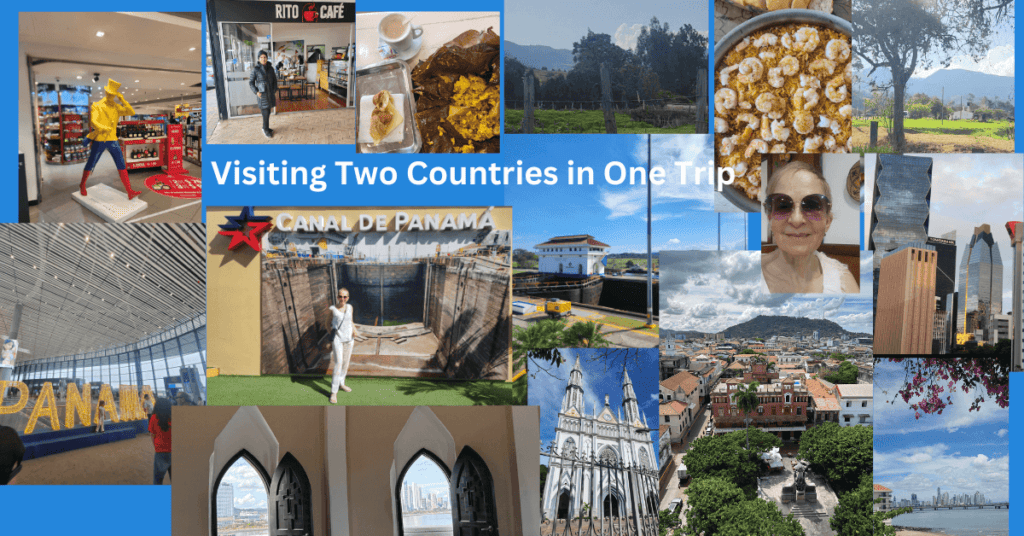
My recent travels took me first to Bogotá, Colombia, to visit family, followed by a tourist adventure in Panama City. Despite having stopped at Panama’s Tocumen Airport countless times while flying Copa Airlines to Colombia, this was my first proper exploration of Panama’s capital and its world-famous canal.
The experience was delightful in many ways. The cultural similarities between Panama and Colombia are striking and unsurprising given our shared history—Panama was once part of Colombia. Panama City reminded me of Colombia’s beautiful Cartagena, albeit without a metro system!
As a visitor, I contributed to the local economy through hotel stays, transportation, guided tours, dining experiences, and souvenir purchases—a microcosm of how tourism drives economic growth.
Las Vegas: A Tourism-Powered Economy
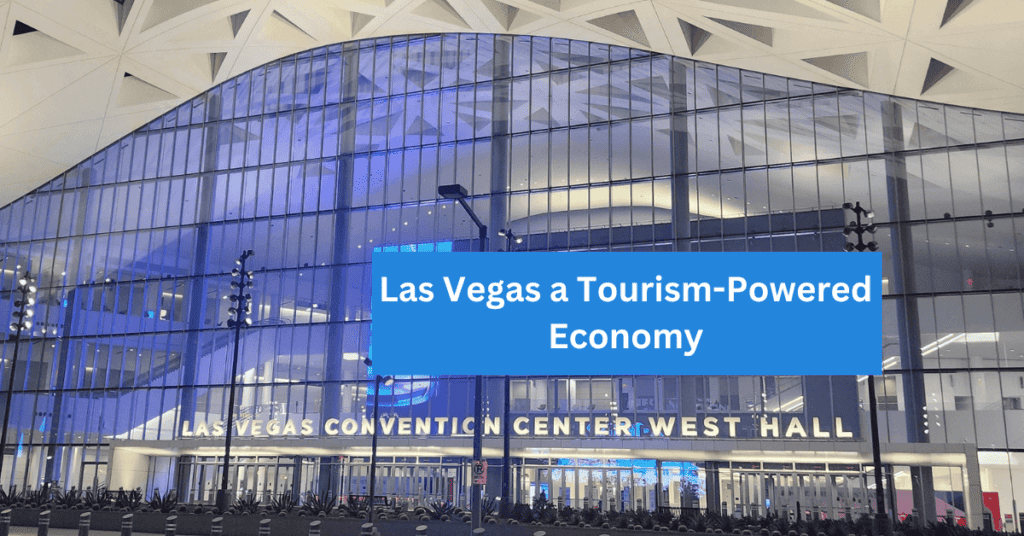
Returning to Las Vegas, I was excited to dive into the spring real estate season, traditionally one of the busiest periods for home buyers. However, I had to prepare myself to answer questions regarding the economic headwinds affecting our market. How do tariffs affect Las Vegas tourism economy and real estate?
Las Vegas’ economic model revolves around attracting visitors from across the globe and thrives in hospitality, entertainment, and conventions. The numbers speak for themselves:
- In 2024, 58.4 million people flew to Las Vegas,
- Of those, 6 million attended conventions.
- Visitors spent an outstanding $51.5 billion, fueling an $85.2 billion economic impact in the community.
Tourism generates thousands of jobs across hotels, entertainment, dining, retail, logistics, and transportation. Leisure and hospitality represent 22.81% of the total employment in the state, with 354,900 people working in the most significant industry in Nevada in January 2025.
Canada and Mexico—our immediate neighbors—represent the top international visitor segments to Las Vegas, followed by the United Kingdom and Germany. This dependency on international tourism makes our local economy particularly vulnerable to shifts in global travel patterns and international relations.
Tariffs Affect Las Vegas Tourism Economy and Real Estate
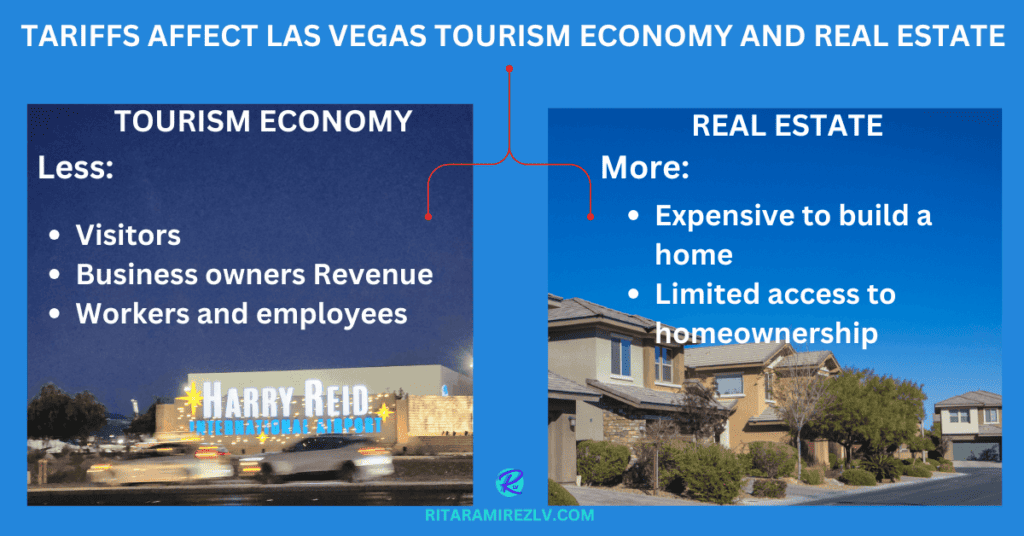
Recent government policies implementing tariffs on goods imported from our key visitor countries have begun to discourage international travel to Las Vegas. When travelers from Mexico, Canada, and other nations face economic pressures at home due to trade tensions, discretionary spending on vacations is often the first casualty.
We’ve seen Canada’s plan to offset the negative economic impact of US tariffs on its economy. This plan includes inviting its people to buy Canadian goods and take domestic vacations to explore their exciting tourist destinations instead of traveling to the US.
Before the tariffs policy, Canadian tourists preferred five top US destinations: Las Vegas, California, Florida, New York, and Texas.
In a recent report, US Travel indicates Canada is the top source of international visitors to the United States, with 20.4 million visits in 2024, generating $20.5 billion in spending and supporting 140,000 American jobs.
A 10% reduction in Canadian travel could mean 2.0 million fewer visits, $2.1 billion in lost spending, and 14,000 job losses nationwide.
Alex Cruz, the vice chair of Canadian WestJet Airlines, also says that Canadians are changing their destinations. Instead of coming to the US, they travel to the “Dominican Republic, Jamaica, and Mexico.“
The ripple effects of decreased tourism are significant:
- Reduced demand for hospitality services
- Decreased revenue for entertainment venues
- Fewer dining and retail purchases
- Potential job losses in tourism-adjacent industries
These economic pressures create a perfect storm for the real estate market. Las Vegas real estate hasn’t fully recovered to pre-pandemic levels, and it is already struggling with high prices due to low inventory and elevated interest rates implemented to tame inflation.
Tariffs aren’t just about international trade—they directly affect the country’s real estate and construction projects.
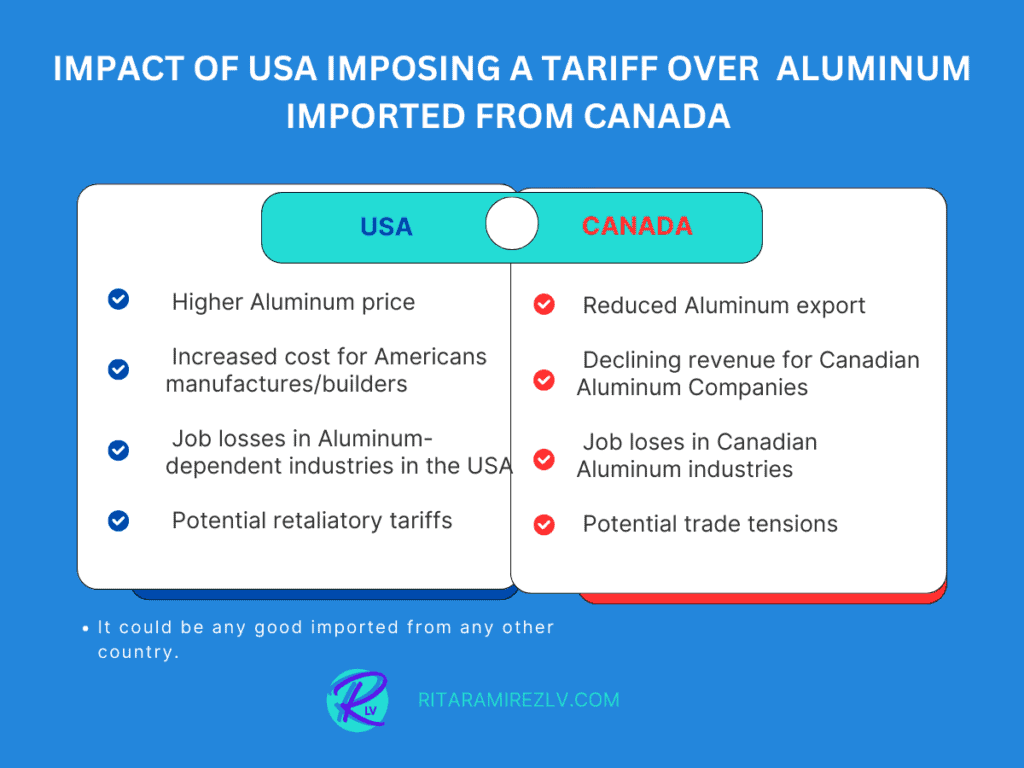
Materials like aluminum, lumber, and steel—mainly imported from Canada—are essential for new home construction and remodeling.
When tariffs increase the costs of these materials, the price of building a home rises significantly. Contractors and developers pass these costs onto homebuyers, leading to higher home prices at a time when affordability is a serious concern.
Then:
🏗️ More expensive home construction = fewer new homes built.
🏡 Higher renovation costs = homeowners delaying upgrades.
📉 Rising costs = a more unaffordable housing market for buyers.
In February 2025, the Las Vegas real estate market shows the following key indicators:
The median price for a single home is $485,000; the market ended with 5,229 homes available for sale, equivalent to 2.9 months of inventory.
The median price for a condo or townhome is $303,000. At the end of the month, 2,025 units were available for sale, which equals 3.9 months of inventory.
The Consumer Confidence Factor
Perhaps most concerning is the psychological impact of economic uncertainty. When people worry about bringing home less money or potentially losing their jobs, major purchases like homes are immediately reconsidered or postponed. Consumer sentiment about economic performance has a direct correlation with housing market activity.
Fannie Mae’s Home Purchase Sentiment Survey, published on March 7, 2025, indicates the Consumer Housing Sentiment is down year over year for the first time since 2023.” based on responses to questions about the following aspects:
- Is it a good/bad time to buy?
- Is it a good/bad time to sell
- Home prices are going up/down in the next 12 months?
- Mortgage rates are going up/down in the next 12 months?
- Are you concerned about a job loss in the next 12 months?
- Is your household income up/down compared with 12 months ago?
Homeownership remains the cornerstone of financial stability and wealth building for many Americans. The social and financial implications can be profound when the “American Dream” of homeownership is postponed and out of reach for many due to economic factors beyond their control.
Looking Ahead: Uncertain Times for Local Real Estate
While it’s impossible to precisely predict the full impact on our economy by tariffs imposed on goods coming from our neighbors, one thing is sure: small businesses, workers, employees, and everyday consumers will feel the effects most acutely.
As a real estate professional, I’m watching these developments closely, ready to adapt to changing market conditions while continuing to serve my clients with the best possible guidance.
What’s Your Experience?
I’m curious about how these economic shifts are affecting you and your family:
- Do you know anybody in your family or social circle affected by a business activity downturn?
- What are your thoughts on how tariffs might impact our local Las Vegas economy?
- Are you planning to buy or sell a home within the next 6 months?
I’d love to hear your perspective and help you navigate these changing market conditions together.

